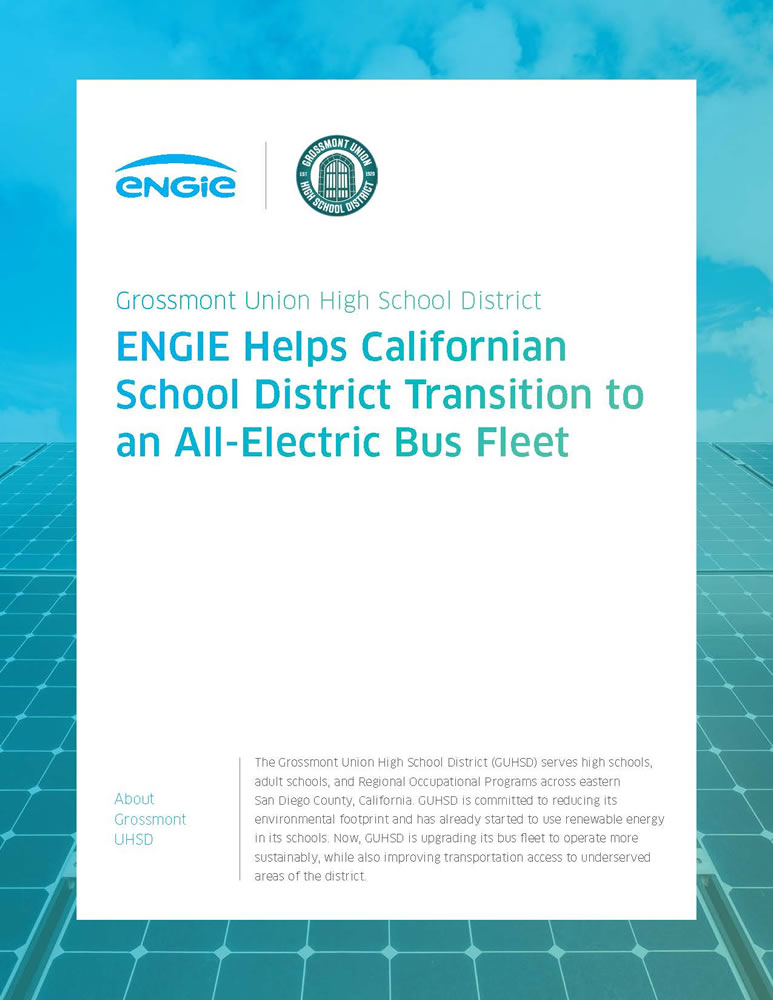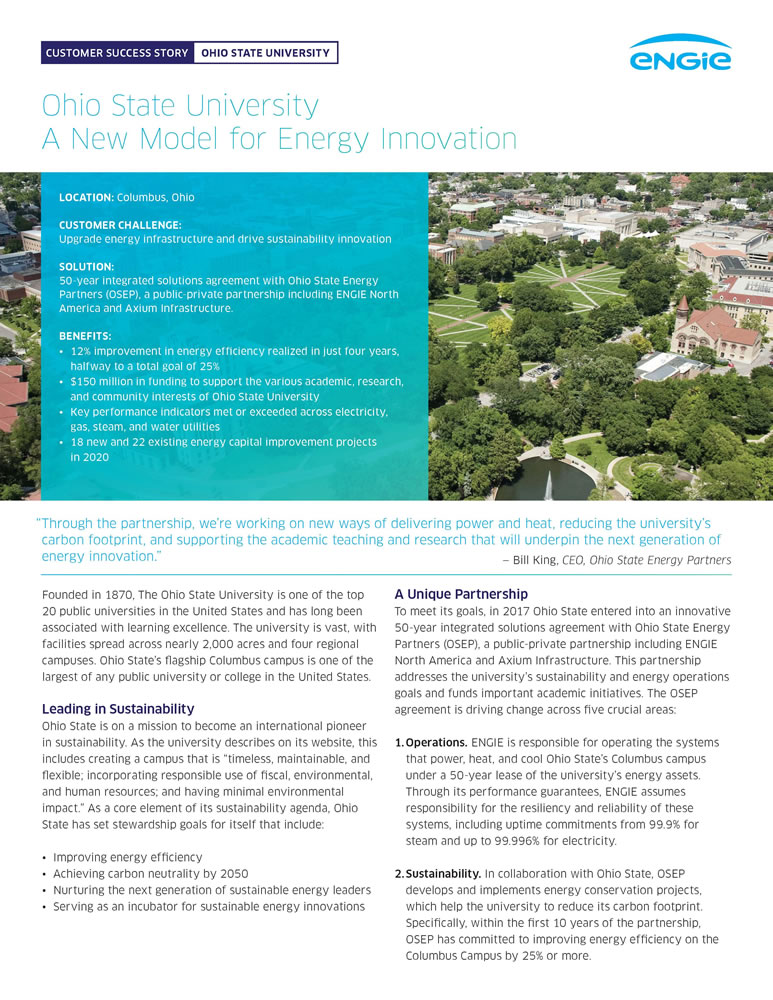Dashboard of Energy Transition
Read
Oregon Community Unit School District 220 - Design-Build Partnership Streamlines Long List of Capital Improvement Projects
Read
Grossmont Union High School District - ENGIE Helps Californian School District Transition to an All-Electric Bus Fleet
Read
West County Wastewater - Energy Infrastructure Upgrades to Reduce Greenhouse Gas Emissions and Operating Costs
Read
Anheuser Busch - ENGIE’s Charging and Solar Solutions Help Get Anheuser-Busch’s Electric Trucks on the Road
Read
Ohio State University A New Model for Energy Innovation
Read